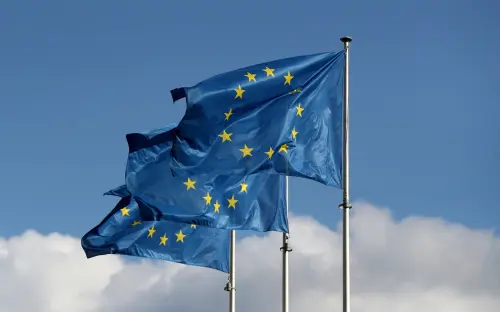In London on February 26 (Reuters) - Significant investors are observing a growing likelihood of a new joint European borrowing initiative as the region rushes to increase defense spending. The restrained response in bond markets, typically sensitive to heightened spending during defense talks this month, indicates that investors see the increased borrowing as manageable thus far. This also suggests an expectation in the market for renewed joint European funding, five years after the launch of an 800 billion euro ($840 billion) pandemic recovery fund by the European Union.
Late last year, investors viewed joint borrowing from the EU itself as -, but the necessity for action has resurfaced with U.S.-Russia negotiations to end the Ukraine conflict pressuring Europe to increase spending, as urged by U.S. President Donald Trump. The EU estimates a need for 500 billion euros in investments over the next decade, with nearly 200 billion euros per year additionally required to elevate defense spending to 3% of output.
Germany's 10-year yield saw a minor increase of less than 10 basis points after the Russia situation but has since reversed this movement. The extra yields that Italy and Spain have over Germany's debt, despite spending considerably less than 2% of their output on defense, have remained largely unaffected.
David Zahn, head of European fixed income at Franklin Templeton, mentioned that "governments start spending some extra, but it won't be huge amounts" in response to the situation. He added that larger amounts would likely need to come from centralized funding, especially as most budgets in Europe are under strain, particularly those of Italy and France. Similarly, AXA Investment Managers fund manager Nicolas Trindade stated that "there comes a point where we're going to have to think about issuance of joint defense bonds" as a possible solution.
Analysts suggest that even Germany, previously opposed to joint borrowing, may find it beneficial. The potential issuance of euros for defense spending could be blocked by a new parliament unless a solution is agreed upon. The expectation is for a joint solution, involving either a new funding vehicle with Britain or more EU bonds, making the bloc a more enduring borrower, although not immediately.
The bloc is currently examining temporary defense spending adjustments within its budget deficit regulations. Additionally, unused loans from its recovery fund worth around 90 billion euros could be reallocated to defense. Further joint borrowing might not materialize until 2027, according to Carmignac economist Apolline Menut, noting that German efforts towards a national solution could reduce the immediate urgency.
As the euro zone debt amounts grow and concerns over large economies' deficits persist, investors wonder about the tolerance levels for additional borrowing, given their current purchasing patterns. The gradual increase in spending over several years aims to alleviate such concerns. The anticipation of higher defense spending has driven longer-term borrowing costs in Germany to surpass shorter-term ones by the most since 2022, indicating expectations for more bond sales.
Asset managers, such as AXA, Allianz Global Investors, and Northern Trust, assert that increased defense spending will support steeper yield curves, especially in Germany. Despite this, with Germany's 10-year yield hovering around 2.5%, significantly lower than the U.S., it remains notably lower than Italy's by 80 basis points.
Franklin Templeton's Zahn remarked that European yields are currently reasonable and not a significant hindrance. The stability of German yields since 2023, when the European Central Bank halted rate hikes, has caught Citigroup's attention. The ongoing trend of increasing debt requirements for investors may eventually lead to yields dipping below 2%, should financing conditions continue to tighten.
Analysis from Goldman Sachs suggests that every additional euro spent on defense would initially boost output by only 40 cents. However, the potential for a more substantial impact on industry and productivity resulting from increased defense spending might sway the market, according to senior European economist Filippo Taddei of Goldman Sachs.
